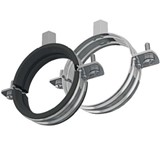Under the Food Amendment (Beef Labelling) Act 2009, businesses will have to classify their beef into five categories: yearling (younger than 18 months), young (18 months to 2 and a half years), intermediate (2 and a half years to three years), mature (3 to 3 and a half years) or economy (older than 3 and a half years).
New South Wales Farmers Association Committee Chairman Richard Chamen said the changes will give Australian consumers a more reliable description of beef quality and will stop them from being ripped off.
"We believe this legislation, together with the beef grading system, Meat Standards Australia, will give consumers better information about how to cook their beef, which will give them a better eating experience," Chamen said.
However, Victorian Farmers Federation livestock representative Chris Nixon believes that the new labelling changes will take some time to get used to.
"The cost of industry doing this is actually quite high. It will affect some of the abattoirs close to the Victorian border. There will be a lot of costly issues with such a defined labelling process," Nixon said.
Meanwhile, the seafood farmers are demanding for the same sort of labelling regulations for their industry.
Australian Prawn Farmers' Association president Nick Moore said that all political parties need to deliver better improved country-of-origin labelling for cooked seafood.
"Unclear labelling dilutes our unique Australian icons," he said.
"We get fake, cheap and imported didgeridoos and boomerangs, and now we are getting barramundi that is not Australian.
"We have laws in this country that make it illegal to sell a fake Rolex watches from Asia.
"But at the moment we are missing clear labelling on menus and order boards for seafood. Consumers want and deserve to know where their seafood is coming from, and Australian farmers need to be able to get their message across at the point many consumers are purchasing seafood – on the restaurant menu," Moore added.
Moore believes that the importance of labelling seafood all comes down to protecting the countries uniqueness and providing quality to the general market.
"It's time our politicians sorted this out," said Moore.
The new labeling system will make New South Wales the first jurisdiction in the country to provide truth in labelling for beef and took affect on 31st August 2010.







